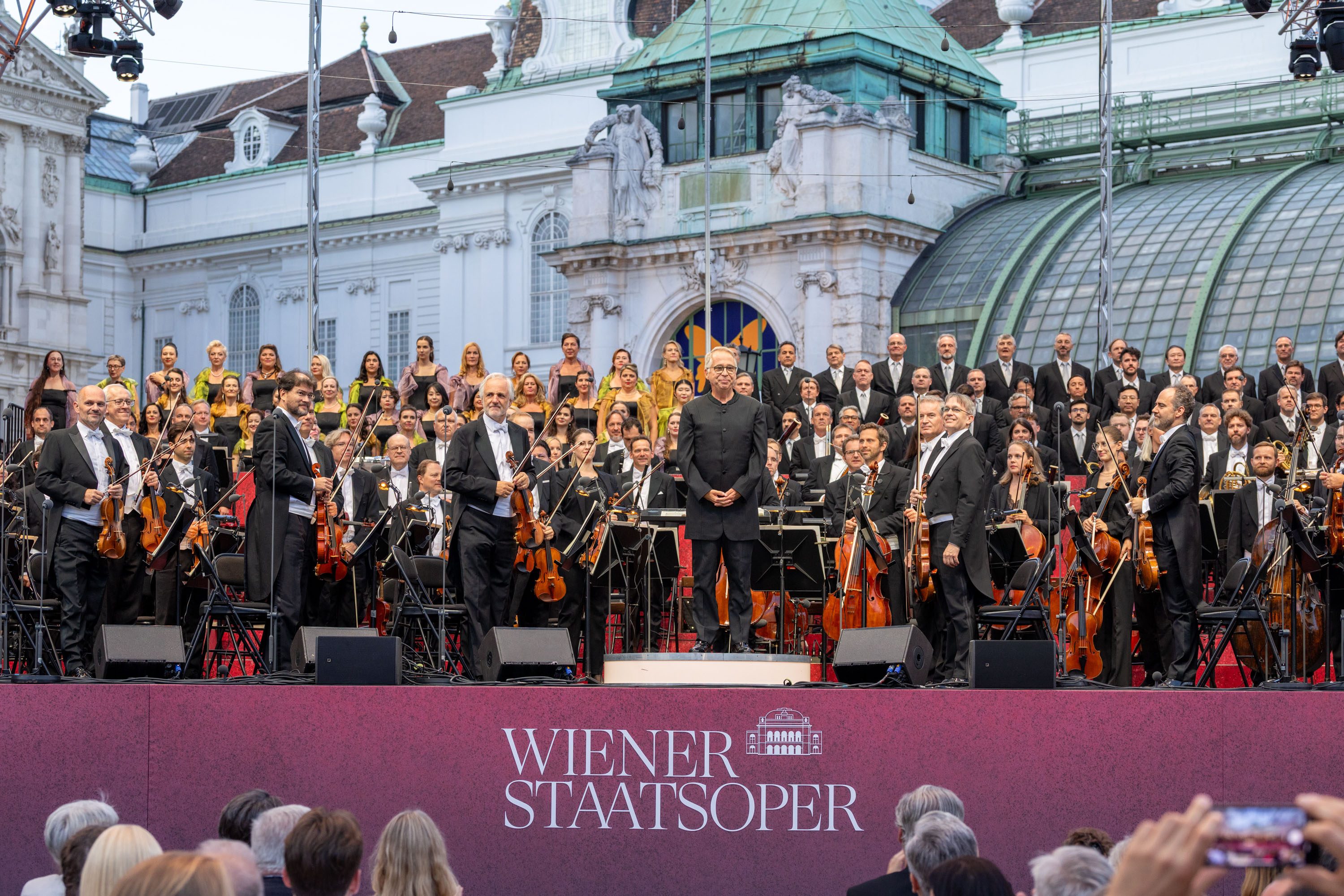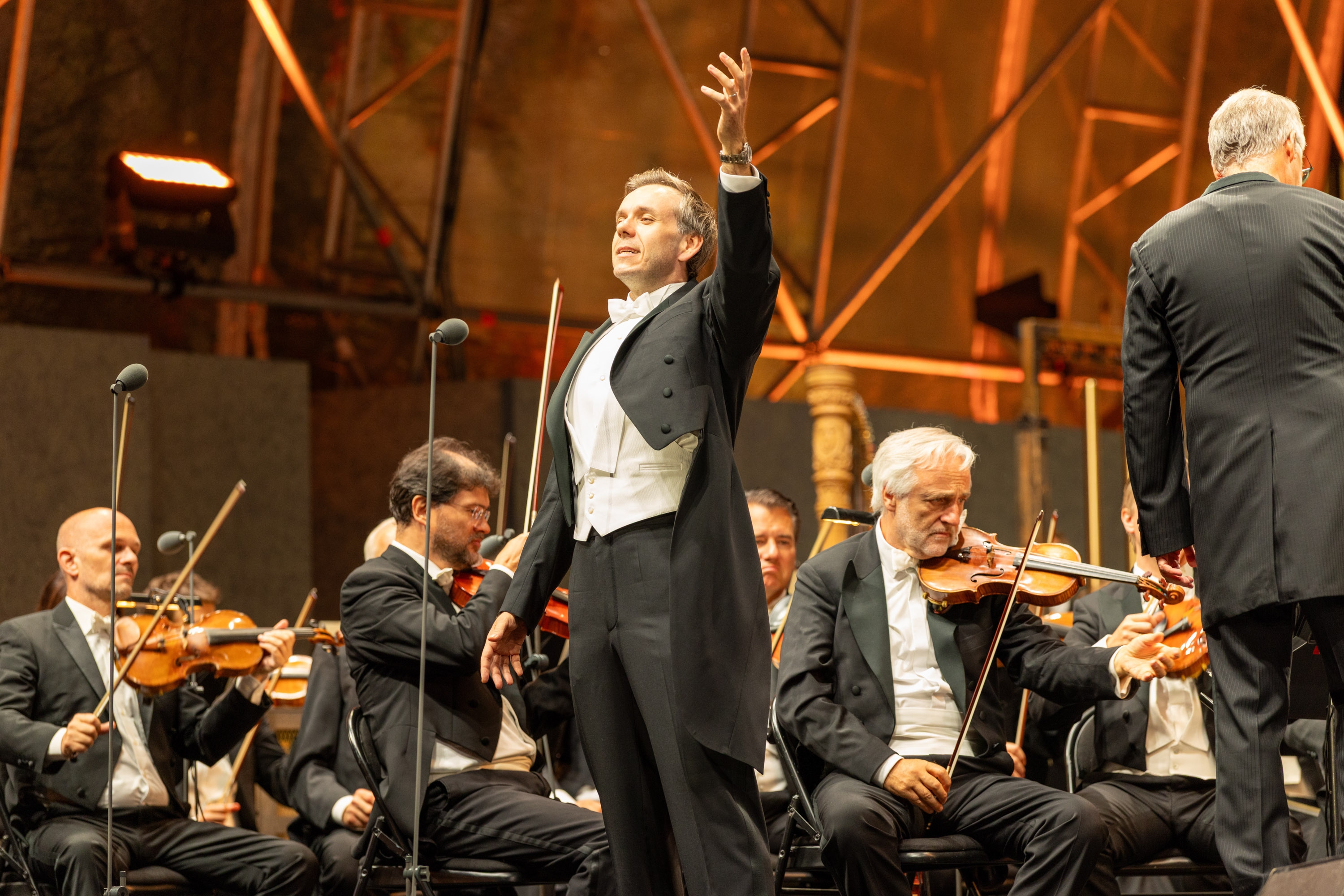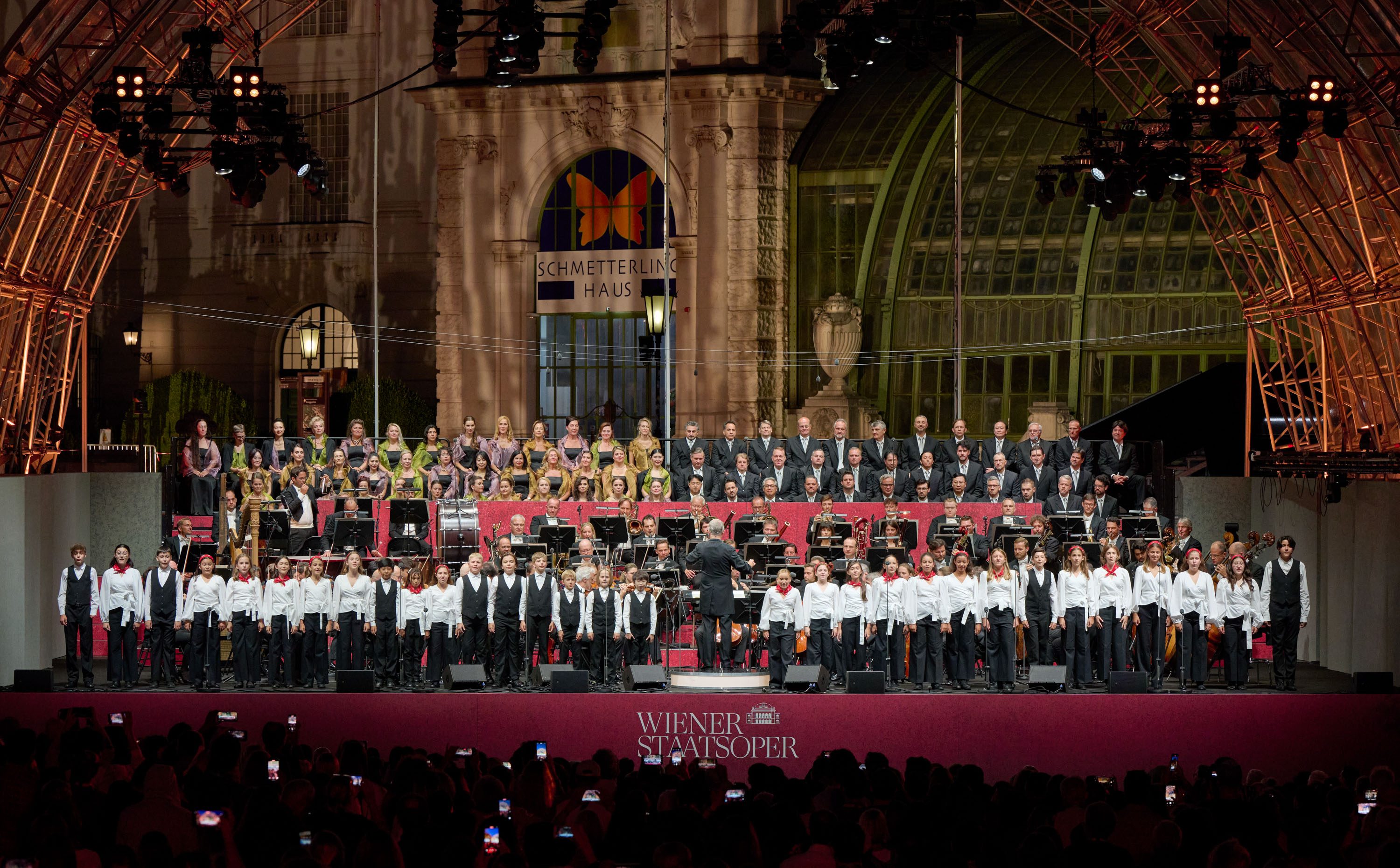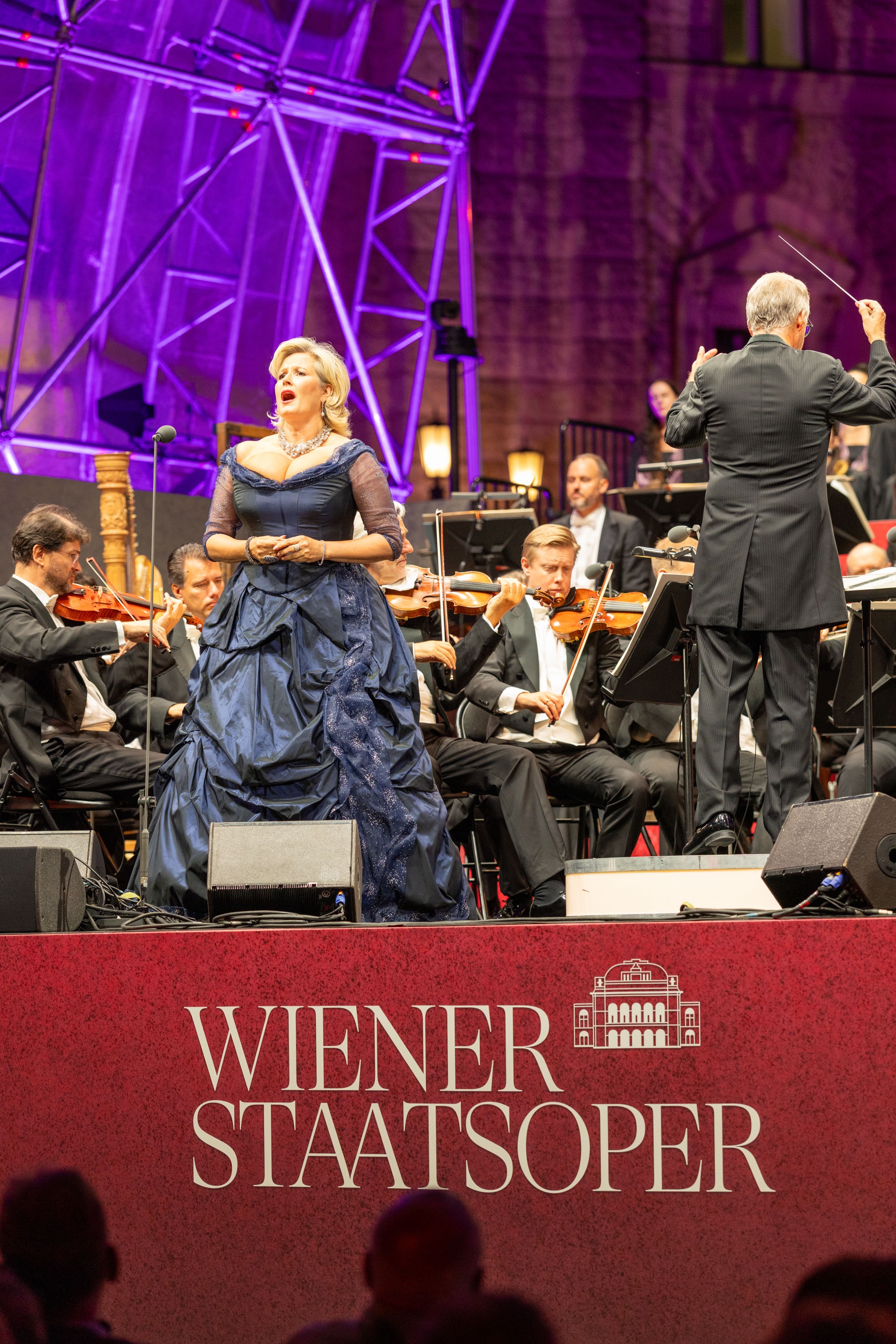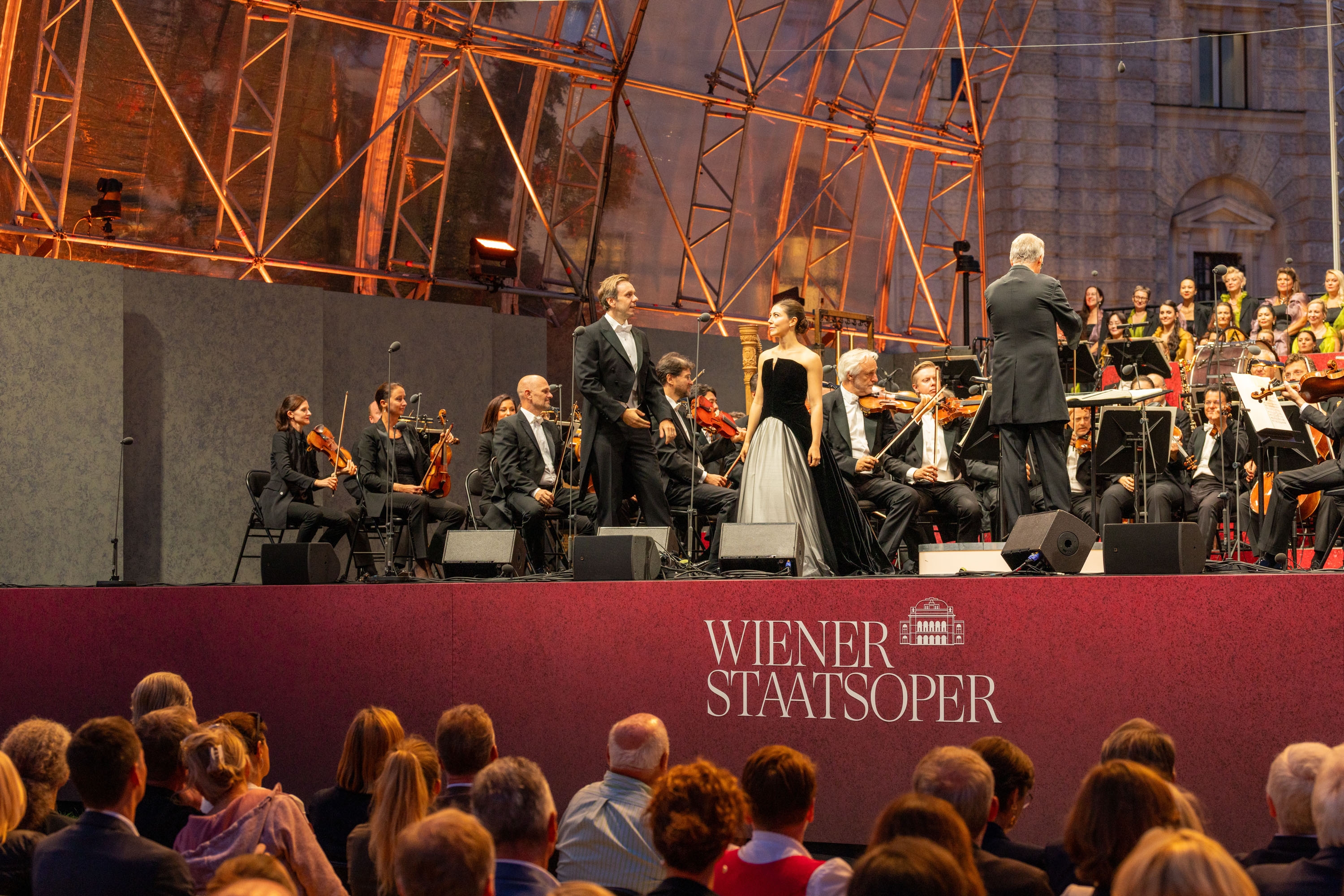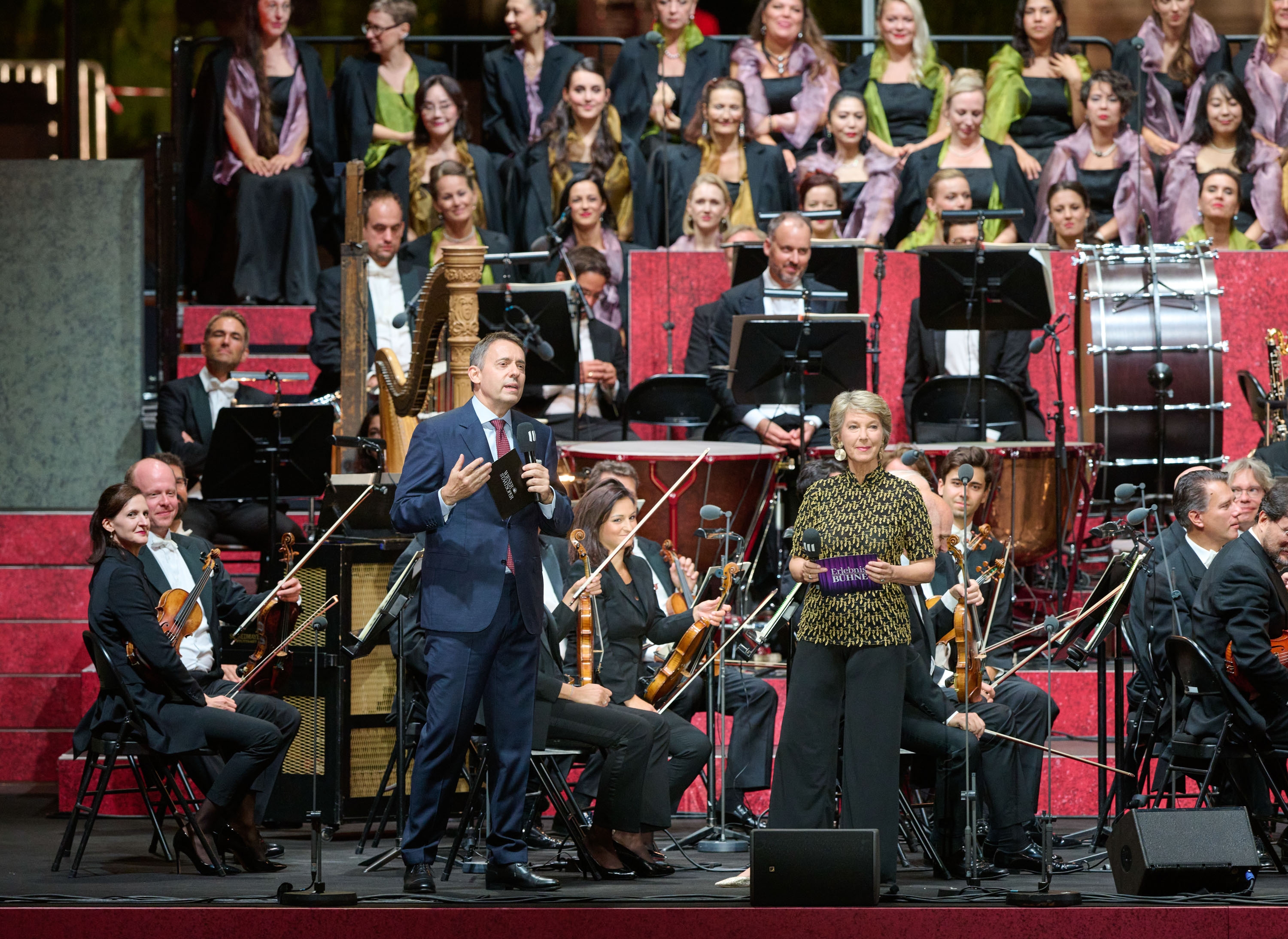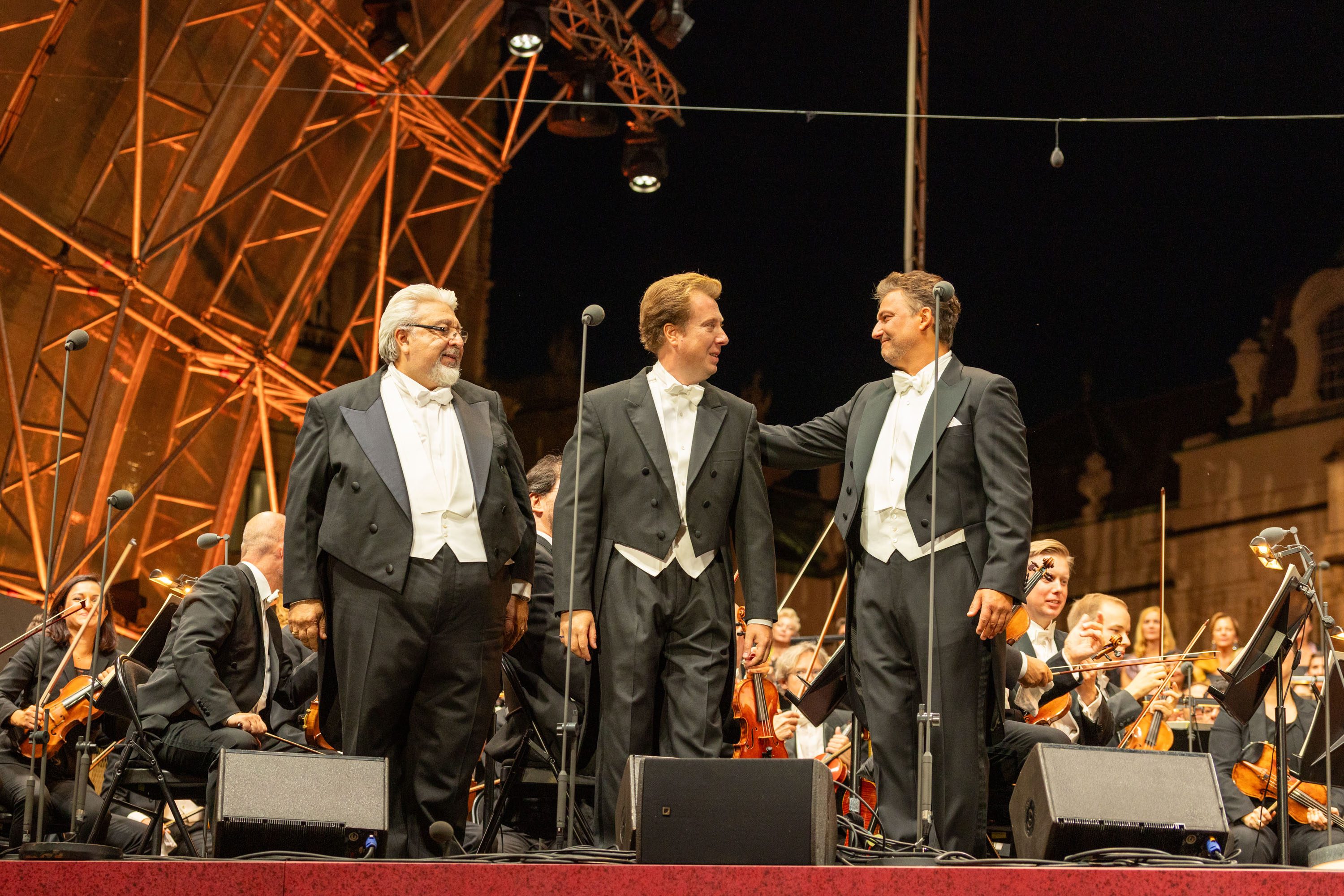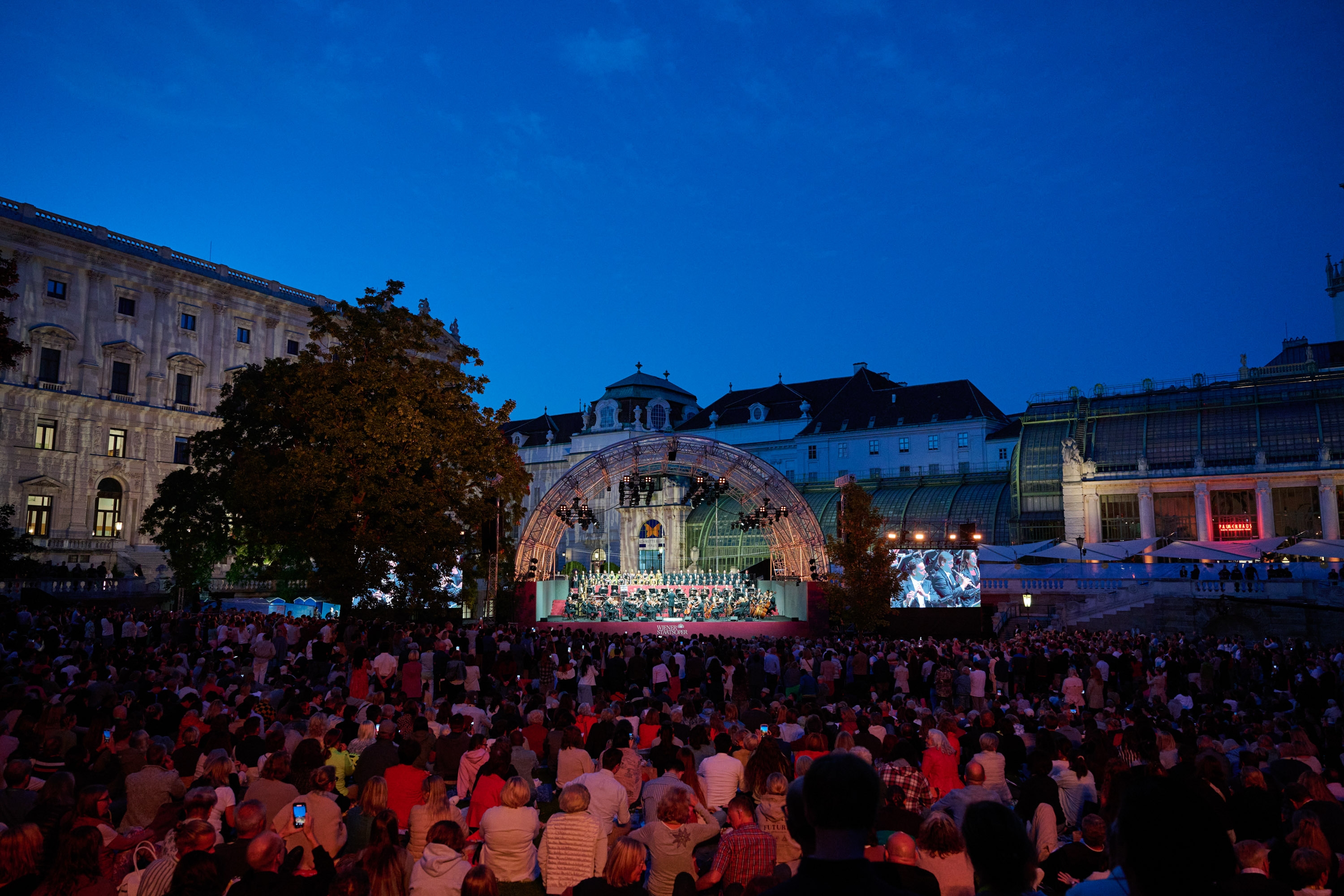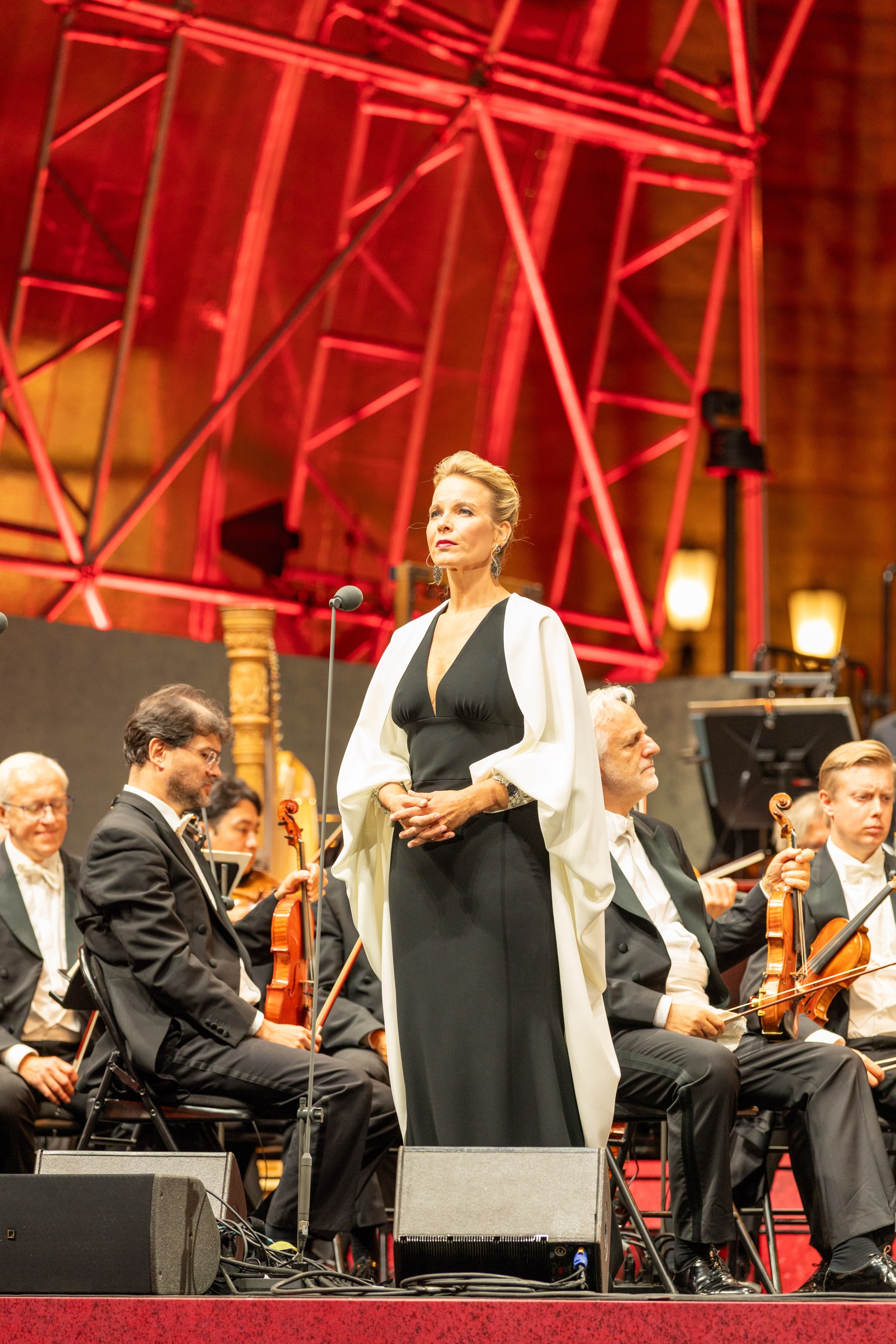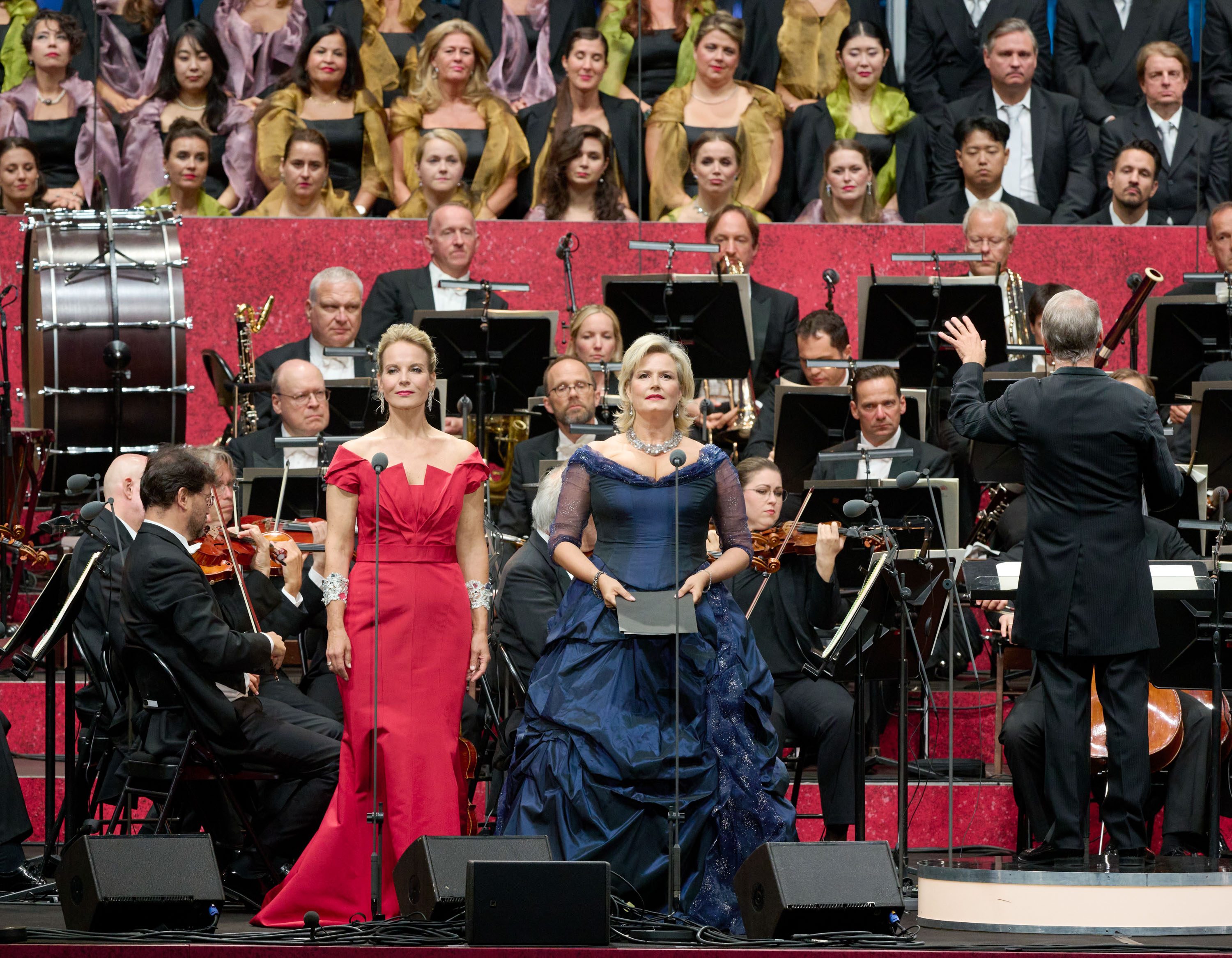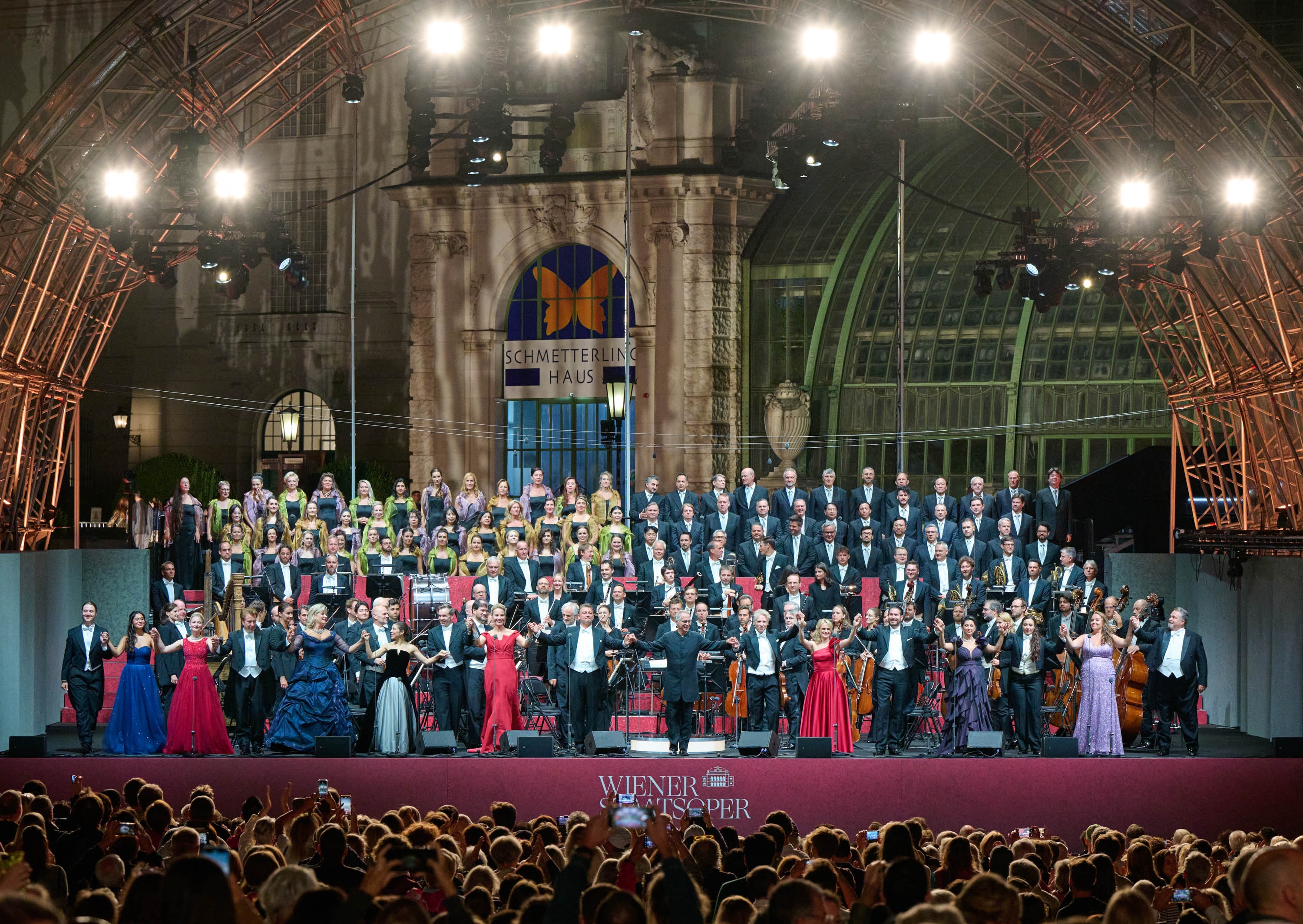The Opera Air Concert
A top-class opera-air concert awaits you in Vienna's Burggarten - with Elīna Garanča, Sonya Yoncheva, Jonas Kaufmann, Benjamin Bernheim and Boris Pinkhasovich as well as the Vienna State Opera Chorus and Orchestra, among others. Bertrand de Billy conducts. Admission is free!
The Burggarten itself is open to park visitors throughout the day, but admission to the event area itself is only from 18:15. The concert starts at 19:00. In the event that there are too many people in the park at once, we will unfortunately have to close it for safety reasons. We will inform you about this on our website and on social media.
But even if parking is restricted, you can still follow the concert, because it will be broadcast on television: ORF III will broadcast live, time-shifted from 8.15 pm. The concert will be available on ORF.ON for three months afterwards. From 7:00 p.m., the concert will also be available via live stream on play.wiener-staatsoper.at and can be accessed there, remaining available for 72 hours afterwards.
Starting on September 18, the entire concert will be available on arte.tv here for about a year. A slightly abridged version will be broadcast on ARTE on October 12.
Program
| Chorus of the Vienna State Opera | Entry of the Guests Tannhäuser (R. Wagner) |
| Jonas Kaufmann | Cielo e mar La Gioconda (A. Ponchielli) |
| Elīna Garanča | Acerba voluttà Adriana Lecouvreur (F. Cilea) |
Benjamin Bernheim Sonya Yoncheva | »Toi ! Vous !« … »Oui… c'est moi !« Manon (J. Massenet) |
| Orchestra of the Vienna State Opera | Ouvertüre Le Nozze di Figaro (W. A. Mozart) |
| Opera Studio of the Vienna State Opera | Soave sia il vento Così fan tutte (W. A. Mozart) |
| Opera School of the Vienna State Opera | Avec la garde montante Carmen (G. Bizet) |
Chorus of the Vienna State Opera Opera School of the Vienna State Opera | Les voici! Les voici! Carmen (G. Bizet) |
Jonas Kaufmann Boris Pinkhasovich Dan Paul Dumitrescu Chorus of the Vienna State Opera | Dio che nell'alma infondere Don Carlo (G. Verdi) |
| Chorus of the Vienna State Opera | »Sailors' Chorus« Der fliegende Holländer (R. Wagner) |
| Benjamin Bernheim | Ah! Iève-toi soleil! Roméo et Juliette (C. Gounod) |
| Elīna Garanča | D’amour l’ardente flamme La Damnation de Faust (H. Berlioz) |
| Sonya Yoncheva | Vissi d'arte Tosca (G. Puccini) |
Ensemble Chorus of the Vienna State Opera | Brüderlein und Schwesterlein Die Fledermaus (J. Strauß) |
| Benjamin Bernheim | Je crois entendre encore Les Pêcheurs de perles (G. Bizet) |
| Jonas Kaufmann | E lucevan le stelle Tosca (G. Puccini) |
Elīna Garanča Sonya Yoncheva | »Evening Blessing« Hänsel und Gretel (E. Humperdinck) |
| Orchestra of the Vienna State Opera | »Ride of the Valkyries« Die Walküre (R. Wagner) |
Elīna Garanča Jonas Kaufmann Benjamin Bernheim Sonya Yoncheva Boris Pinkhasovich Chorus of the Vienna State Opera | Im Feuerstrom der Reben Die Fledermaus (J. Strauß) |
Background
2025 is an important year for Austria. It marks the 80th anniversary of the liberation from National Socialism and the establishment of the Second Republic, and we are also celebrating 70 years of the State Treaty.
but 1945 and 1955 are also crucial dates in the history of the Vienna State Opera: On March 12, 1945, bombs hit the building on the Ring, large parts burned out and it took 24 hours to extinguish the fire.
Just two months after the destruction, emergency artistic operations were made possible in the Volksoper and later also in the Theater an der Wiener. Meanwhile, the Haus am Ring was rebuilt. The parties in the provisional government of 1945, consisting of the ÖVP, SPÖ and KPÖ, unanimously supported the reconstruction plan.
The ceremonial reopening took place on November 5, 1955. After a ceremony in the morning with a lot of politics, Beethoven's Fidelio, "the" opera about unjust rule and liberation through love, was performed in the evening. And the performance became a symbol of a new Austria.
Those who were not there were able to listen in via loudspeakers, 40 radio stations from all over the world broadcast the performance, and at the same time Austrian live television was born: people crowded into halls and inns - because who had a TV set at home in 1955 - to at least be there via television.
The fact that the new director of the Vienna State Opera, conductor Karl Böhm, had also been the last director during the Nazi era was kept quiet.
The fact that Hans Tietjen, the director of Fidelio, was just as much a Nazi artist as Rudolf Eisenmenger, who was allowed to design the Iron Curtain and for whom great names such as Fritz Wotruba were passed over - that was not mentioned either. Like about many and many other things.
in 1955, the Vienna State Opera was therefore a symbol for many things - for freedom, dedication, passion, identity. And unfortunately also for the highly questionable way in which Austria at the time dealt with its immediate past.
For the first time in the history of the opera house and also in commemoration of the years 1945 and 1955, we are therefore opening the season with a large open-air opera festival.
The house and seating regulations for the Opern Air apply.
